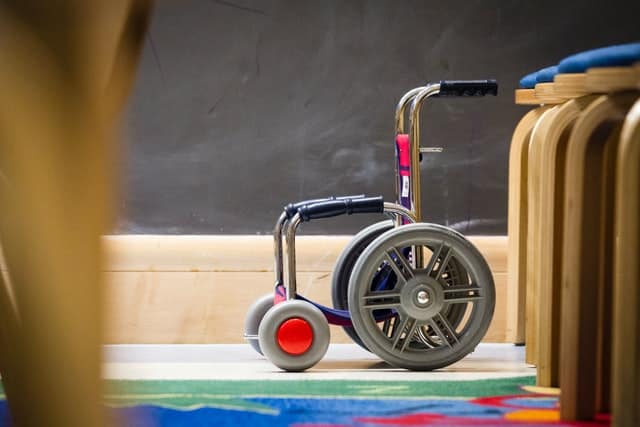
When you’re parenting a child with disabilities, protecting and supporting your child can take you on a unique and emotional rollercoaster. According to The Census Bureau, 6.2 percent of children aged 5 to 15 years old are living with a disability. Furthermore, recent studies by the Center for Disease Control found that there has been an increase in developmental disabilities among children in the USA – approximately 17 percent of children aged 3-17 years old are known to have one. For the parents and families of these children, parenthood can look a little different. From accessing the latest information on your child’s disabilities to supporting your own health, here are a few ways you can help your child navigate life with disabilities.
Prepare Yourself And Your Household For Your Child’s Diagnosis And Unique Life Path
For a child with disabilities and their parents, the childhood and parenthood path is often unique. As a parent, you quickly learn that their childhood can be different and at some times, difficult. In this case, it helps to be prepared. This is why arming yourself with reliable and verifiable information on your child’s condition helps. Doing your research on your child’s disabilities gives you access to the best ways you can support them throughout their childhood.
Your research should cover multiple facets relevant to you and your child. Whether it is accessing information on non-profit entities providing mental health support for children with disabilities, occupational and physical therapy options, or how-to guides on starting special needs financial planning, knowing where to go for help means you can help your child enjoy the best quality of life. For instance, parents researching the role of cerebral palsy occupational therapy for children can access the benefits of occupational therapy for both parent and child, along with gaining an idea of what their child’s occupational therapy plan will look like or the exercises used in a therapy session. Similarly, organizations providing help on financial planning can provide useful information on grants or medical discounts to help with the medical bills that come with having a child with disabilities.
Find Out Where You And Your Child Can Get Information And Support
One of the best ways you can support your child is by providing them with the knowledge of where to go and what to do if they need help navigating life as a person with a disability. For children with disabilities, many of life’s traditional milestones can be uncertain or shrouded in questions. Therefore, having a list of organizations or resources that can support you throughout their childhood will be incredibly useful.
For instance, children with special needs can experience difficulties in school. These can range from difficulty concentrating, physical mobility, speech and language, and even bullying. While each child is entitled to additional educational accommodations under The Americans with Disabilities Act and The Individuals With Disabilities Act, each state has its own criteria for selection and applications. Resources provided by the State Department of Education and your school district can help you gain clarity on this. Nonprofit organizations like the Learning Disabilities Association of America can also help you to gain insight into your child’s disabilities and how to best support them growing up. You can also work with your child’s teachers and schools to create an amended learning curriculum or implement aids to improve their school experience.
Join Or Create Your Own Socialization Group
Whether it is a parent group or child playdates, socialization with other families should not be ignored. Besides the comfort and support that socializing with other families and kids can offer, it can also help you to get a glimpse of the future. While children with some disabilities may find it difficult in social situations, there is a wide list of groups, organizations, and tools that can make the process easier.
One of the best ways to encourage socialization and interaction is to begin at home. Starting with small meaningful actions like pretend or role play with your child at home can encourage them to interact as they would on a playdate. If your child is comfortable with relatives or local friends, consider inviting them over for a playdate in your home or another setting that your child finds safe. Choosing a safe place helps to calm any anxieties your child may have, and provides a sense of familiarity for them. Finally, explore local center-based therapy or social skills training groups as a way for your child (and even yourself) to build on their socialization skills. Summer camps for children with special needs like YMCA Summer Camp, Camp GreenTop, and the National Ability League are also great options.
Lastly, don’t forget to make time for yourself as a parent. Raising and supporting a child with disabilities often requires a lot of hard work and sacrifice. It is important that you take the time for self-care, whether that is in the form of adopting a new hobby, taking regular exercise, or attending therapy sessions to work through your feelings about the diagnosis. After all, you cannot pour from an empty cup.
